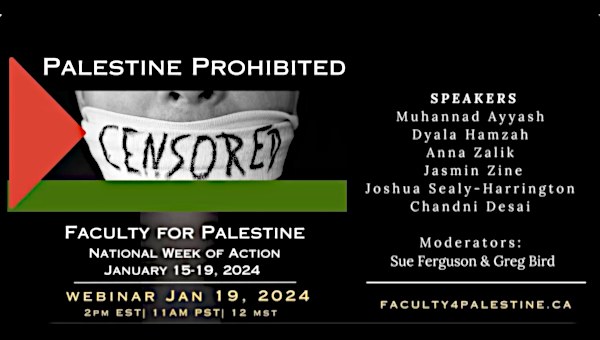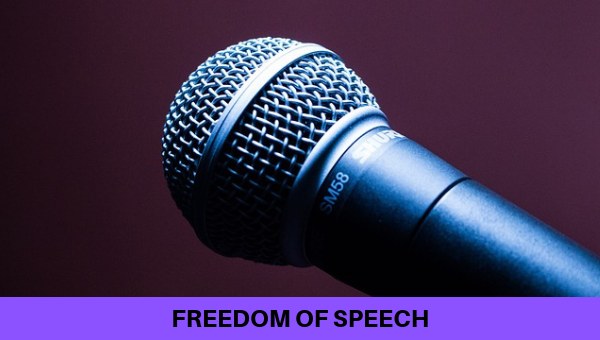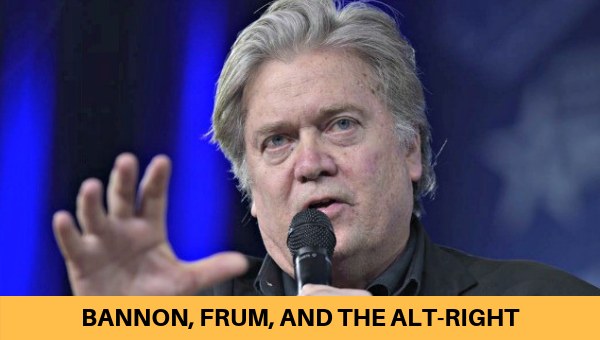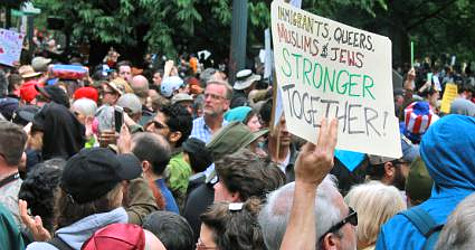Interview with Michael Yates
Michael Yates is an economist, labour educator and activist, editor of the magazine Monthly Review, and author of Why Unions Matter among many books. He blogs at CheapMotelsandaHotplate.org. In this interview he talks about the crisis of the labour movement, its relationship with the anti-racist movement, FightFor15 and much more. He was interviewed by Juan Cruz Ferre for the LeftVoice.org website, where it was first published.
Juan Cruz Ferre (JCF): In the latest edition of your book, Why Unions Matter (2009), you depict a grim situation of the labour movement in the U.S.; record-low unionization rates and the reluctance of union leadership to engage in class-warfare were some of the main features. Has this scenario changed at all since then? Do you see any signs of labour movement revitalization?
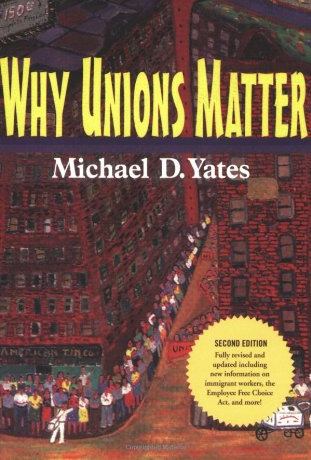
Michael Yates (MY): In terms of the willingness of labour leaders – AFL-CIO officials and those at the top of individual unions – to engage in class-struggle unionism, the answer is no, the situation today is similar to that in 2009. These people often talk a good game, but their actions belie their words. Strikes are extremely rare, and concession bargaining is still common. Allegiance to the Democratic Party is still the rule, no matter how anti-labour the Democrats are. The issues that would indicate a shift to a more class-conscious unionism would be bargaining shorter hours, weakening of management rights clauses, an end to no-strike agreements, control over the labour process, and the like. A commitment to union democracy and labour education would be essential, but this seems unlikely. As does an abandonment of the mindless patriotism so common in labour circles. Of course, there are exceptions, and we read about these in Labor Notes and in the essays of people like Steve Early. There are militant locals in unions and even a couple of national unions give us hope, such as the United Electrical Workers.
Signs of revitalization are not readily apparent, although labour support for OWS, the revolt in the AFT over the leadership’s early endorsement of Hillary Clinton, labour support for the candidacy of Bernie Sanders, labour’s strong opposition to the Trans Pacific Partnership trade agreement, and especially the changes in the Chicago Teachers’ Union are positive things. As is the struggle for better pay for low-wage workers referenced in the next question. I do think that as inequality grows, as insecurity rises, and as democracy gives way more and more to authoritarian rule, working people might more openly revolt and carry organized labour with them. If groups like Black Lives Matter deepen their class consciousness and begin to make a deep critique of the capitalist system and if left-wingers deepen their grasp of racial oppression and stop thinking that full employment and other class-first programs will bring racial oppression to an end, then we might see something really exciting happening.
JCF: The recent success of New York’s wage hike for fast food workers shows the potential of the SEIU-sponsored “Fight For 15” to achieve significant gains for fast-food workers, but the likelihood of fast-food workers unionizing en masse still seems far away. Also, even when the SEIU is expanding its membership, it is not necessarily building rank-and-file power. What do you make of this campaign? Do you think it has the potential to help revitalize the labour movement?
MY: I’ll make three points here. First, all struggles to improve working conditions are good and worthy of our support. Wages have stagnated for decades, and about a quarter of all jobs pay a wage that, with year-round, full-time labour, does not support a family at the federal government’s meager poverty level of income. So the “Fight for 15” represents overall a progressive development, all the more so to the extent that minorities are overrepresented in fast food restaurants. Second, I agree with your comments. I have no great love for SEIU, which although it has many fine organizers and locals, is a thoroughly top-down union, run by grossly overpaid executives who have not the slightest commitment to internal democracy and who have engaged in the most ruthless and contemptible tactics with respect to dissidents and especially to the National Union of Healthcare Workers. The union also has a history of using its money politically to get governmental units to create special bargaining units that SEIU then “organizes” and from whose members, dues are collected. With Fight for 15, something similar is probably afoot. Legislated victories are best when there is an aroused worker base engaging in militant actions which force the state to give in and enact legislation. But this probably presumes unions with strong democratic structures and real rank-and-file education and efforts. Third, for this to revitalize the labour movement, it would have to embrace a lot more workers. After all, there are millions of other food workers who don’t make $15 an hour.
In addition, and this is the main thing, wage struggles operate on the terrain of the labour market. Here capital will always have the upper hand, because it has many arrows in its sling with which to ameliorate the impact of wage increases on profits. The proper terrain for today’s struggles has to be the labour process, that is, it should be over control of how the work is done and who decides this. If this were the case, then political struggles would flow right from it. Demanding that the state expand social security, guarantee employment and some minimum income, protect the environment, socialize health care, and many other things would, when successful, enhance labour’s power on the job. And lay the foundation for a radical critique of capitalism itself, something wage struggles cannot do.
JCF: In your book, you mention the centrality of radicals like the Knights of Labor and the Wobblies in workplace organizing in the late 19th and early 20th century. What is the role of the U.S. Left in relation to the working-class today?
MY: I suspect that much of the left has abandoned the working-class. Most leftists have little connection to working people, even though they may themselves be workers. Those who write, for example, may write about the working-class, but they do not write for the working-class. Left intellectuals think that intellectual activity is in itself radical, because radical ideas are necessary for the development of any anti-capitalist movement. However, ideas without action are pretty useless, and it is here that leftists fail most dramatically. Some say that as young radical intellectuals find that they themselves are stuck in bad and insecure employment that they will identify as workers and embed themselves solidly inside the working-class. This hasn’t much happened yet, however. Movements of youth offer hope here, though. It might be that they will become “organic intellectuals” like some older leftists and help to lead and educate the large working-class. This would be a wonderful development, maybe akin to what happened in the 1930s. Transformative radical education, as developed by people like Henry Giroux will be of great importance. Also, the tendency toward egotism, even narcissism, which is so evident in some parts of the left will have to be combatted with great fervor.
Capitalism tends to create people in its own image, alienated individuals, and we must make every effort to help workers confront and change this. To see our supposed weaknesses as our strengths: compassion, solidarity, hatred of illegitimate authority, and the like. We can see the great difficulties involved here when we look at Syriza in Greece, a party that campaigned on behalf of workers, the unemployed, the poor, but capitulated totally to their European overlords and abandoned their base without much of a fight. In the United States, there is probably nothing wrong with leftists supporting Bernie Sanders, but it would be naïve I think to overestimate the radical benefits of his campaign.
JCF: Recently, members of the UAW local 2865 petitioned the AFL-CIO for the disaffiliation of all police unions. What’s your opinion on this?
MY: I do not see how police can be accepted as part of the working-class movement. They are workers, it is true, but their role is as supporters of capital. This does not mean that workers should never support particular police demands. If police unions come to support community-controlled policing, an end to stop and frisk and all of the other racist practices so common now, then we can support their efforts.
JCF: Can we really expect cops and their unions to demand community control of the police or an end to racist police practices?
MY: Of course, the chance of such things transpiring is close to zero. So workers and communities will have to demand these changes and put maximum pressure on police and their unions to comply. One other point can also be made. Given the centrality that racial and ethnic minorities must play in any revitalization of the labour movement, how can this revitalization occur when the very people who are killing minorities are part and parcel of the movement these minorities will have to be key in building? By the way, the same thing goes for prison guards, and for the same reasons.
JCF: You said one of the reasons for the demise of the labour movement was the failure of unions to address racial and gender oppression. How do you think organized labour should intervene in Black Lives Matter?
MY: It is not so much a question, I think, of intervening, but of developing strong anti-racist efforts within unions, complete with education of members and support for what Black Lives Matter and other anti-racist and black liberation struggles are doing. By support I mean just that, and not attempts to co-opt or lead such movements. Black union members will play a pivotal role in any of this. And really, labour needs to get its own house in order around race before it can do anything that is credible. For example, why is it that the AFL-CIO does not come out with a super strong campaign, complete with press conferences, political agitation, demonstrations, and whatever else creative leaders can come up with to force upon the nation the necessity of bringing to fruition the long unfinished business of black liberation.
“Wouldn’t it be nice to see [President of the AFL-CIO] Richard Trumka speak out with passion and conviction for prosecution of police who kill black men and women? To say that he will lead a demonstration in the town where the next murder occurs?”
Frankly, I don’t see this happening anytime soon, but on the other hand, there are many union workers who are either fully attuned to the need to end racism and the structure of racial inequality built into nearly every aspect of U.S. society or can be won over to this. But wouldn’t it be nice to see [President of the AFL-CIO] Richard Trumka speak out with passion and conviction for prosecution of police who kill black men and women? To say that he will lead a demonstration in the town where the next murder occurs? To call a one-day general strike to call national attention to the terrorism perpetrated every day against black communities? To rebuke publicly the leaders of prison guard unions that are complicit in the brutality of the prison system? How else to have any credibility in minority communities and with those who lead black liberation struggles?
Much of what I just said can be applied to gender oppression too.
JCF: Immigrant workers make up an ever-increasing proportion of the U.S. working-class. Usually ignored by many unions, undocumented immigrants find assistance and support from workers’ centers. In your view, what are the potentials and the limitations of these organizations?
MY: If we look at centers like that in Immokalee, Florida and the Chinese Staff and Workers’ Association in New York City, we see the potential. These build struggles organically within specific communities. They win victories that directly benefit workers and at the same time deepen the understanding of the members of the forces at work against them. Some centers also engage in practical matters within their communities, such as helping with immigration problems, literacy, housing, etc. In some ways, they show what a new labour movement might look like. A broad conception of the working-class and the problems that any labour movement must address. They sometimes have tactical advantages over traditional unions in that they might not be subject to the Taft-Hartley prohibitions against secondary labour boycotts.
On the other hand, money is always a problem, and to the extent that workers’ centers survive on grants, they will not likely develop in a radical direction. And without some sort of national organization that unifies the centers and helps them devise national programs and a national politics, they end up as narrow organizations incapable of building class struggle on a large scale. Also, as is the case with Immokalee, forcing large companies to pay more for the products that the workers harvest and then getting agreements that this money will be paid by the workers’ direct employers might not truly confront the power of these employers, who will continue to exploit their employees despite paying them higher wages.
Of course, this last paragraph could be directed at what passes for a labour movement in this country. Turning the argument around, we might ask why traditional labour unions do not offer full support to the centers, with money and no strings attached. Why not embrace any and all attempts to create a new labour movement. •


